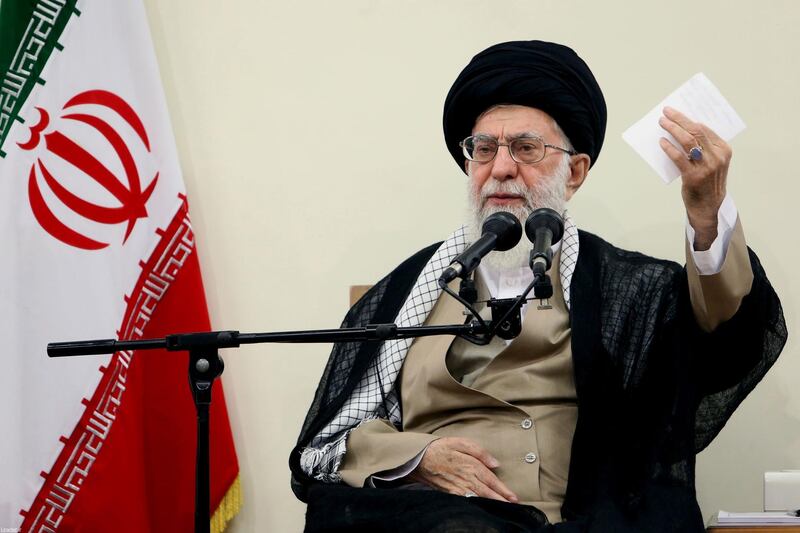Iran's Supreme Leader has accused the United States and allies of fomenting unrest in Iran.
State TV Sunday quotes Ayatollah Ali Khamenei as saying the US has formed a coalition with other regional countries that is unable to defeat Iran.
Ayatollah Khamenei didn't name any specific nations in the so-called coalition but alleged it is imposing economic pressure on Iran to “separate the nation from the system”.
He said: “If the U.S. was able to overpower the Islamic system, it would not have needed to form a coalition with notorious countries of the region to create chaos, unrest and insecurity in Iran.”
US President Donald Trump, after withdrawing from the landmark nuclear deal, has ramped up pressure on Washington’s allies to cut off purchases of Iranian oil, which accounts for 60 per cent of the Islamic republic's income.
Last week, online videos showed police firing tear gas at protesters angered by Iran's cratering economy. It was the first such confrontation after similar demonstrations rocked the country at the start of the year.
The leader of Friday prayers in Tehran called for calm and fortitude after days of protests by the capital's Grand Bazaar traders fuming over the plunging value of Iran's currency and rising prices, the semi-official Fars news agency reported.
_______________
Read more:
[ Arab Coalition: military pressure is bringing Houthis to negotiation table ]
[ Houthis cut water and electricity to Hodeidah residents ]
[ Iran FM echoes Pompeo in Twitter rebuttal over protests ]
_______________
Three days of protests in Tehran and other cities began on Sunday when hundreds of traders in the bazaar – the hub of merchants who backed Iran's 1979 Islamic Revolution that ousted the longtime monarch – closed their shops to voice their anger at currency plunges.
Iran's rial has lost 40 per cent of its value since President Donald Trump's decision on May 8 to pull the United States out of Iran's 2015 nuclear deal with world powers and reimpose tough economic sanctions on Tehran.
The protests resembled nationwide demonstrations in January that were originally sparked by economic hardships but turned political. However, the protests earlier this year took place largely in Iran's provinces rather than in Tehran.
Most international sanctions imposed on Iran were lifted in early 2016 under the nuclear deal that saw Iran curbing its disputed nuclear programme under close UN monitoring.
With contributions from Reuters and the Associated Press





